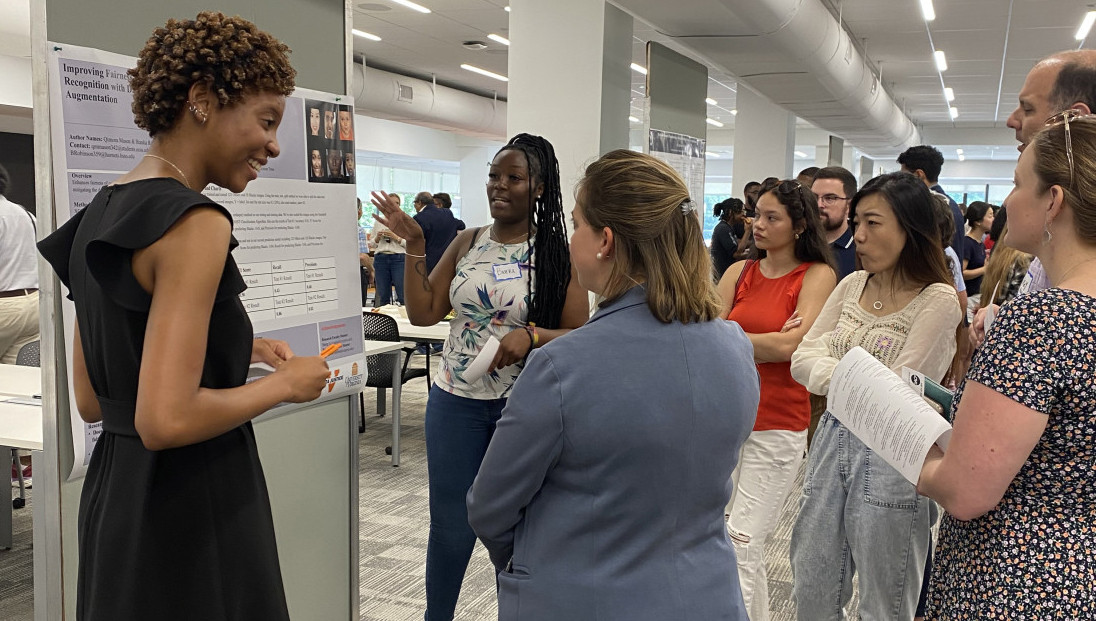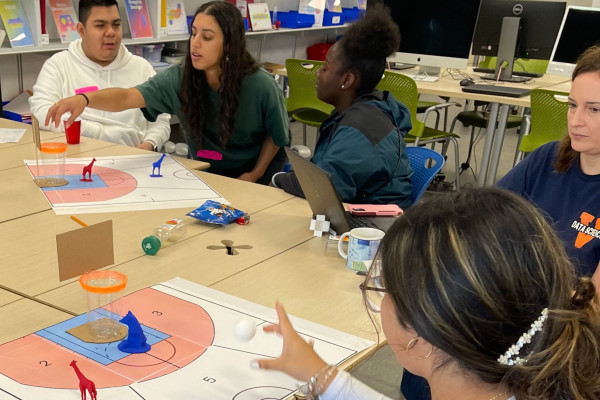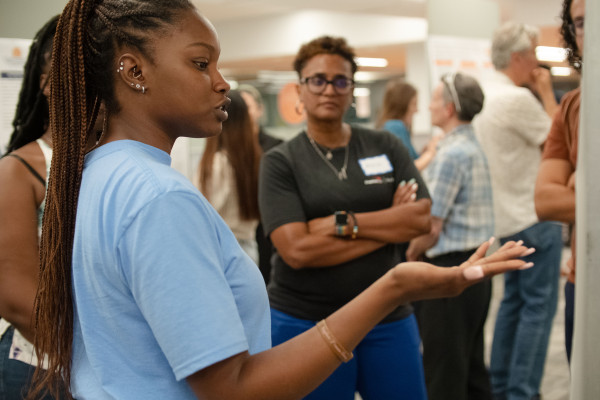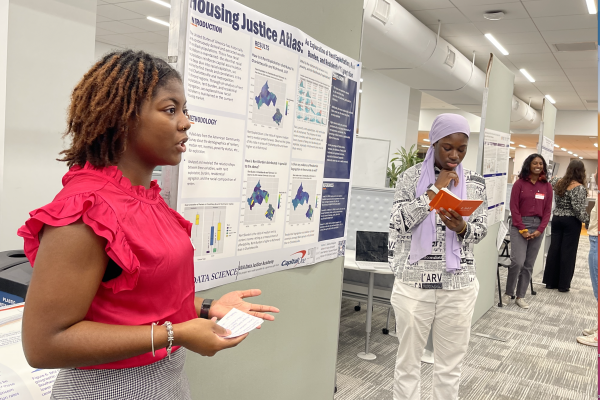Data Justice Academy Receives New Funding from NSF

The National Science Foundation will provide funding to the University of Virginia’s Data Justice Academy, the agency recently announced, support that will help the summer program continue to serve undergraduate students from groups that are historically underrepresented in data science.
Established in 2021 by the School of Data Science, the Data Justice Academy provides a 10-week residential experience to participants in which they perform mentored research while learning technical skills.
The overriding goal of the Data Justice Academy is to highlight for participating students how data science and computational social science can be used to help communities and promote a more just world. Beginning next year, the School of Data Science will partner with UVA's Equity Center in managing the program.
Thus far, the academy has provided such opportunities to more than 30 undergraduate students to work on projects focused on issues like health disparities, privacy concerns with large language models, the labelling of transgender individuals in census and public health data collection, and many more — all centered around the three research pillars of the Data Justice Academy: social inequality, ethical data science, and critical data studies.
Demonstrating the positive impact data projects can have on communities is vital to recruiting students from minority groups and other backgrounds to STEM-related fields, the academy’s organizers say.
“Research experiences at the undergraduate level have been classified as a high-impact practice — that is, they transform student engagement, performance, retention, and well-being,” said Claudia Scholz, founding director of the Data Justice Academy and director for research development at the School of Data Science. “We are grateful for NSF’s support to allow us to continue to provide these experiences to students from underrepresented groups."
Throughout the 10-week program, students work with School of Data Science faculty and graduate students, providing participants invaluable professional development as they look ahead toward potential graduate school opportunities and their career paths.
In the funding proposal to the NSF, academy organizers laid out planned research efforts for upcoming cohorts of students.
They include the Climate Justice Mapping project, aimed at identifying opportunities for equitable climate planning; the Housing Justice Atlas project, which will develop a predictive model to analyze various eviction challenges given different policy scenarios; an initiative to mitigate demographic bias in facial recognition; and an examination of the political economies of digital identity and biometric systems in the humanitarian sector.
The NSF award is expected to fund the Data Justice Academy through summer 2027. The directors of the grant are Scholz and Yue Cheng, an associate professor at the School of Data Science.
Since its inception, the program has received support from Capital One, Deloitte, Oracle, and a private gift.
Past participants in the Data Justice Academy will gather in Charlottesville, Virginia, Aug. 1-2 for a reunion and symposium.


